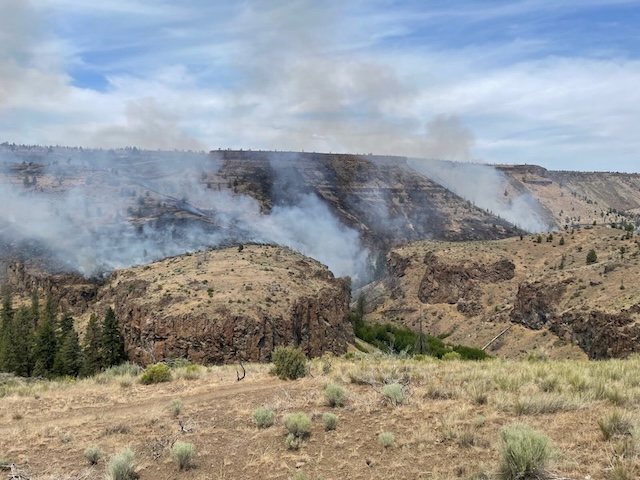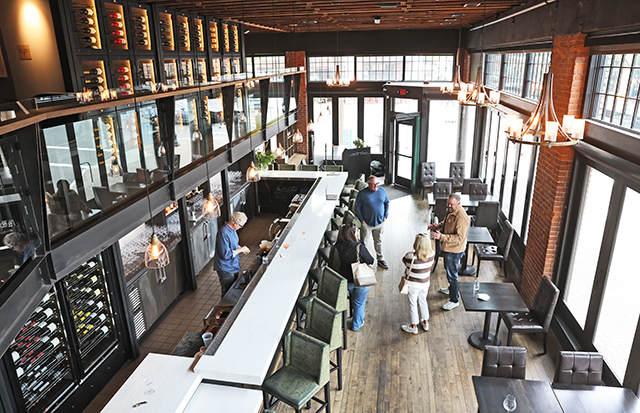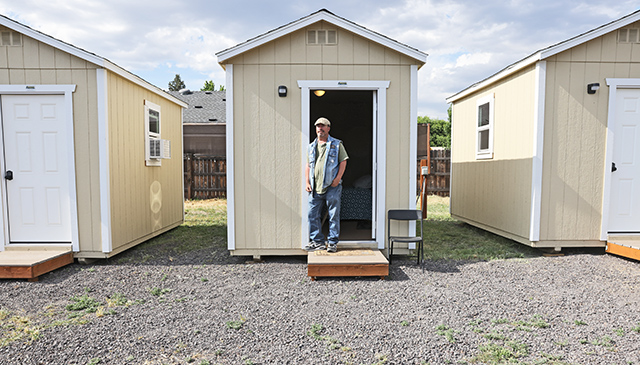Brazil fire prompts Bend inspections
Published 4:00 am Saturday, February 2, 2013
In the wake of a nightclub fire that killed 236 people in Brazil this week, the Bend Fire Department stepped up its program to inspect city venues for safety and fire code compliance, a deputy fire marshal said Friday.
Not that any of the 500 large-occupancy buildings or the 50-some bars on Bend’s west side are unsafe, said Deputy Fire Marshal Dan Derlacki. He’s using the fire in Santa Maria, Brazil, as a teachable moment, he said.
“The most common thing we see when we do inspections at nighttime is … something in front of the exit,” a trip hazard or something hindering escape, Derlacki said. “Simply, things that can be moved out of the way.”
The Fire Department conducts regular inspections of large-occupancy buildings or building complexes once a year, said Derlacki, one of four deputy fire marshals. Derlacki’s jurisdiction covers west Bend, including Mt. Bachelor ski area, the Old Mill District, Central Oregon Community College and downtown, home to the largest nightclub venues. Midtown Ballroom at 51 N.W. Greenwood Ave. can hold 900 patrons, while Liquid Lounge at 70 N.W. Newport Ave. is rated for 700.
“We have inspection priorities (for) fire inspections from the beginning of the year,” the deputy marshal said. “But we’re bumping up the bars and nightclubs to a higher priority to do them this month.”
He said some owners and managers heard of the Brazil fire and called, asking for inspections. The department also conducts four annual nighttime inspections when the bars and clubs are at their busiest, usually around holidays like St. Patrick’s Day or Halloween, with visits announced and unannounced.
“We can look during the day all you want, but you need to look at them when they’re full of people to see how they’re actually operating,” Derlacki said.
Brazilian police faulted a single exit with an obstruction as a contributing factor to so many deaths in the Sunday nightclub fire, according to the Reuters news service. The fire started with pyrotechnics unsuitable for indoor use but employed nonetheless by the band performing that night, along with a highly flammable foam soundproofing that produced a toxic gas when it burned, according to reports.
Ten years ago, a similar fire burned through The Station, a nightclub in West Warwick, R.I., killing 100 patrons and injuring approximately 200. A band playing for a crowd of 450 employed pyrotechnics for special effects. The pyrotechnics ignited the foam insulation on the ceiling and wall near the band, according to the U.S. Fire Administration.
An investigation by the National Institute of Standards and Technology found that “strict adherence to the 2003 model codes available at the time of the fire could have helped prevent the tragedy.”
Derlacki said The Station fire proved a landmark event in terms of fire code enforcement in Bend. A battery of inspections after that fire discovered similar foam soundproof batting in at least one club in town, and the owners quickly removed it. The department does not grant permits for indoor pyrotechnic displays, he said.
“Most of our clubs wouldn’t even think about it, but information is going out so everybody knows the same rules,” he said.
The department wrote each bar and club owner in 2003 explaining potential hazards and outlining fire code regulations, Derlacki said. Similar letters are going out this week.
Midtown Ballroom Manager Jim Dickey said inspectors have pointed out minor problems like holes in drywall. And he knows to keep exits in the building clear. Dickey said he’s tried to make the ballroom a more open space and installed extra lights that illuminate if the power goes out. “That’s a huge part of getting out of a building,” he said.
But he’s fielded no inquiries from club patrons about safety at Midtown in the wake of the Brazil fire. “I haven’t actually, really, had any,” he said Friday.
The Fire Department rarely cites business owners for violating fire codes, preferring instead to work with them to address hazards. Derlacki said he’d rather a club owner spend the money fixing an unsafe condition than paying a fine.
“The business owners make money by being in business. If they’re shut down by a fire or emergency or an instance in which people don’t feel safe, it hurts their business. So they have an incentive to stay safe,” he said. “They don’t want to be that place that causes injury or death.”
Obituary — As New York’s fiery mayor, Ed Koch led the city through fiscal austerity and racial disharmony in the 1970s and ’80s. C5
Be safe; be aware
Bend Deputy Fire Marshal Dan Derlacki offered tips to bar and nightclub patrons who find themselves in crowded venues:
• Take a few seconds and locate all available exits. Locate the closest exit. Is it blocked? Register a complaint if you find exits blocked, chained or not clearly marked.
• Assess your surroundings. Do you feel safe? Does the building appear overcrowded? Are there fire sources like candles, pyrotechnics, cigars or cigarettes that make you feel unsafe? Venues of 5,000 square feet or more require sprinkler systems. Most commercial venues require an alarm system. Ask the manager for clarification. Leave if you feel unsafe.
• React immediately in an emergency. If an alarm sounds or you see smoke, fire or other unusual circumstances, leave immediately in an orderly fashion. Use the nearest exit. Remember, lights may be out.
• In an emergency, stay out. Let emergency personnel conduct rescues.
• Report unsafe conditions to the Bend Fire Department at 541-322-6309.






